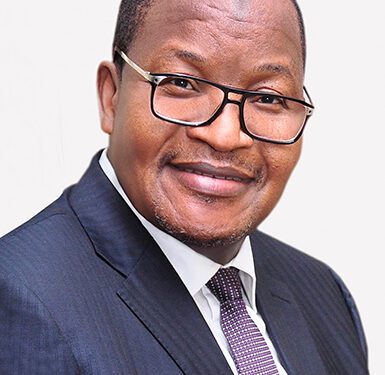At this time when the Nigerian economy is dwindling, the Nation needs Agencies that can hugely contribute to the economic growth, rather than sapping from it.
The National Communications Commission is an economic development agency, tasked by government with the protection and promotion of the interests of consumers against unfair practices including but not limited to matters relating to tariffs and charges for and the availability and quality of communications services, equipment and facilities. The agency has equally added to economic development and growth in the country.
The Nigerian Communications Commission was given full capacity and was also empowered to carry out certain functions in order to attain its goals, and these functions were regulatory functions.
Observers are quite aware today, that between oil and communications, the latter is gradually taking over in the provision of revenue for the country as the nation strives to diversify the economy.
The Organisation has been involved in helping in the investment promotion within the communication industry. The Commission is responsible for creating an enabling environment for competition among operators in the industry as well as ensuring the provision of qualitative and efficient telecommunications services throughout the country.
The Nigerian Communications Commission (NCC) remitted a whooping sum of N463 billion to the Federal Government’s Consolidated Revenue Fund from 2015 to April 2022. The Commission under the Executive Vice Chairman, NCC, Prof. Umar Danbatta, has higely focused on its Strategic Vision (Implementation) Plan SVP 2021 – 2025, which took into consideration the provisions of the National Digital Economy Policy and Strategy 2020-2030, and National Broadband Plan 2020-2025. The SVP has five focus areas, which include: operational efficiency and regulatory excellence, facilitation of infrastructure provision for the digital economy, promotion of fair competition, inclusive growth and investment, improvement of quality of service, quality of experience and facilitation of strategic collaboration.
Listing the successes recorded under his leadership since 2015, major stakeholders in the industry have mentioned teledensity, broadband penetration and significant contribution of the industry to the GDP that grew from 8.5 per cent in the 4th quarter of 2015 to 12.61 in the 4th quarter of 2021 as the sector also attracted over $2 billion in foreign direct investment over the period.
Other achievements by the commission are the recent successful auction of 3.5GHz spectrum for 5G, licensing of seven fibre optics infrastructure providers and an additional 38, 296 kilometer fibre optic to the country’s spectrum.
Being an independent regulatory authority for the telecommunications industry in Nigeria, the NCC was created under Decree number 75 by the Federal Military Government of Nigeria on 24 November 1992. Access gap clusters in the country have been reduced from 217 to 114 to enable 15 million Nigerians to have access to telecommunications services and increase fibre optics deployments from 47,000 kilometers to 54, 725 kilometers.
The sprawling building housing the new bride in town, NCC, is located on Plot 423, Aguiyi Ironsi Street, Maitama District, Abuja. NCC’s 3G and 4G base transceiver stations (BTS) have increased from less than 30,000 in 205 to 53, 460, while seven VSAT gateway earth stations have been licensed to boost broadband penetration.
Data users and callers have noticed that the quality of services have improved tremendously over the past few years, largely because the commission has been affirmative in its decisions. Its efforts are generally felt in the economy. So in truth, talking of digitalisation of the economy, the NCC and the operators are the first point of call.
NCC has proven to be a viable Federal Agency that handles communication- responsibilities in the Nation. Under Danbatta, the commission has also remitted N463 billion to the Consolidated Revenue Fund from 2015 to April 2022. The Commission has not veered off its mandate established in the Nigerian Communications Act 2003, which was signed into law by the President, Chief Olusegun Obasanjo (GCFR) on the 8th of July 2003 after being passed by both Houses of the National Assembly. The Act provides the NCC with the capacity to properly carry out its Regulatory functions and activities.
It Consults With Industrial Organizations, Commercial Organizations And Consumers Organizations. This is a major function of the Nigerian Communications Commission, and it is very important since it is a Communications regulatory body. These organizations, such as the consumer’s organization and industrial organization and commercial organization need information and Communications to thrive or drive their businesses.
That is why, for the most part, the Nigerian Communications Commission has to consult with these organization perhaps, for the purpose of communicating their businesses to the members of the public.
NCC’s landing permits have been issued to 53 Geo Satellite Orbits (GSO) space stations and 923 non-GSO space stations.
For emphasis sake, Nigerian Communications Commission is a regulatory body, which also has regulatory functions to perform. In most cases, the Commission as a regulatory body will license organization that intend to venture into communication business or that is already in the business.
In situations such as this, the Nigerian Communications Commission will have to give written directions to licensees. This aspect of the function of the Nigerian Communications Commission is quite necessary and important.
Stakeholders in the Communications sector have at different times commended the leadership of the NCC for remarkable strides of the agency that has earned a remarkable international reputation for Nigeria and placed the telecoms regulator in the forefront of the nation’s quest for forward-looking national economic growth.
Apparently, the entire country, and the world, are fully aware of the strategic importance of the NCC as a regulating institution of the telecommunications industry in Nigeria.
At this juncture, we only request that the leadership of the commission continue the good work and also strive to bridge the infrastructural gap between the served and underserved communities in the country.
Olamide Adeniji is a member of the editorial team of TheScript Newspapers




